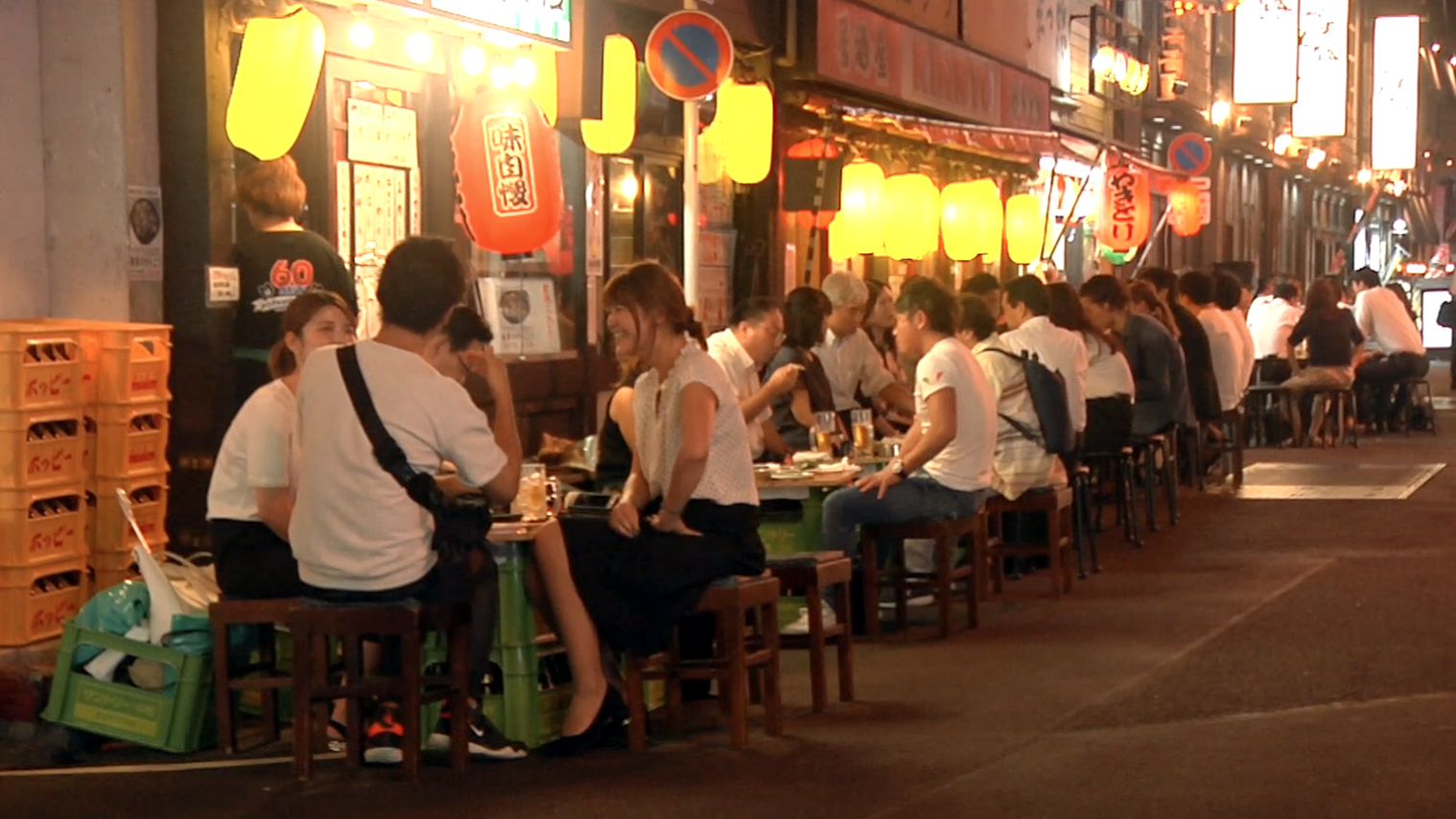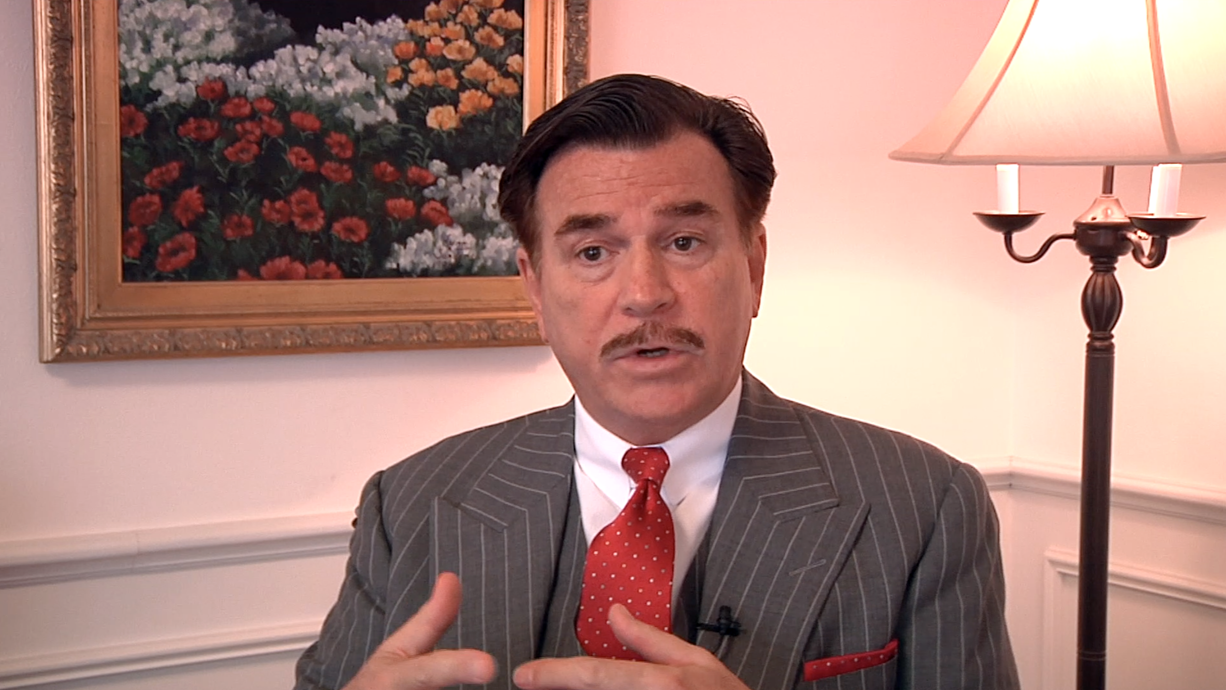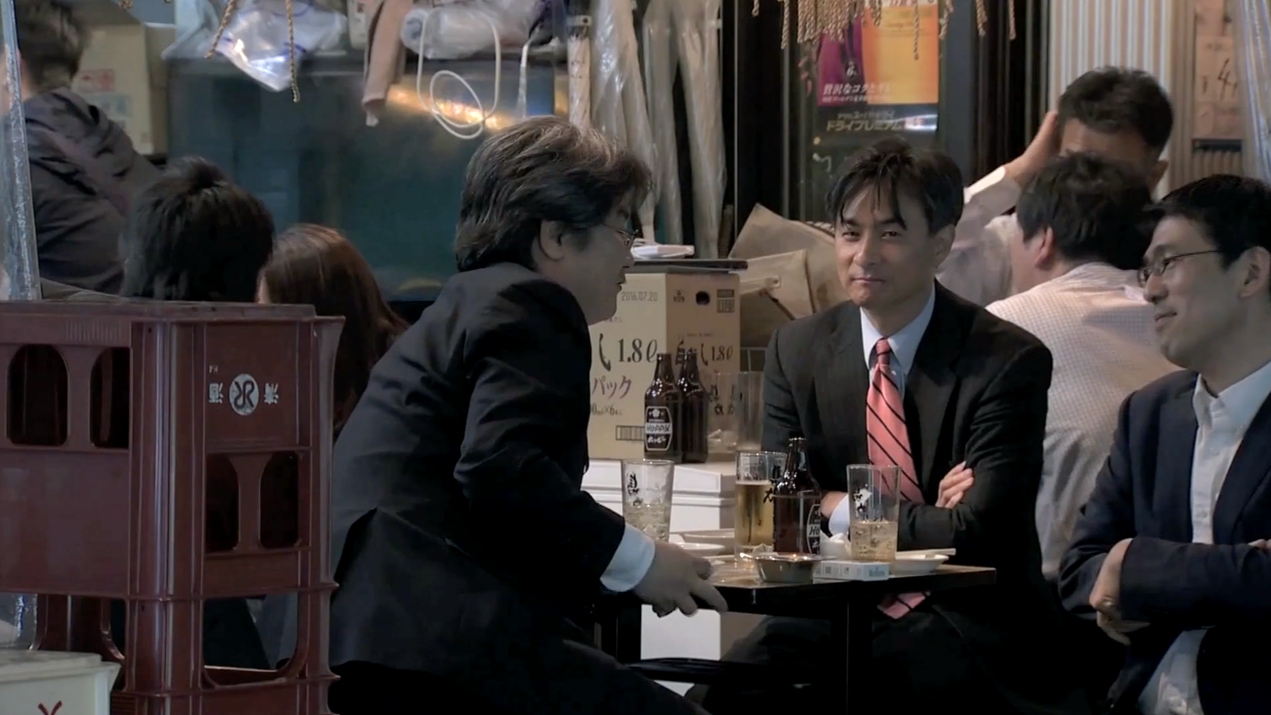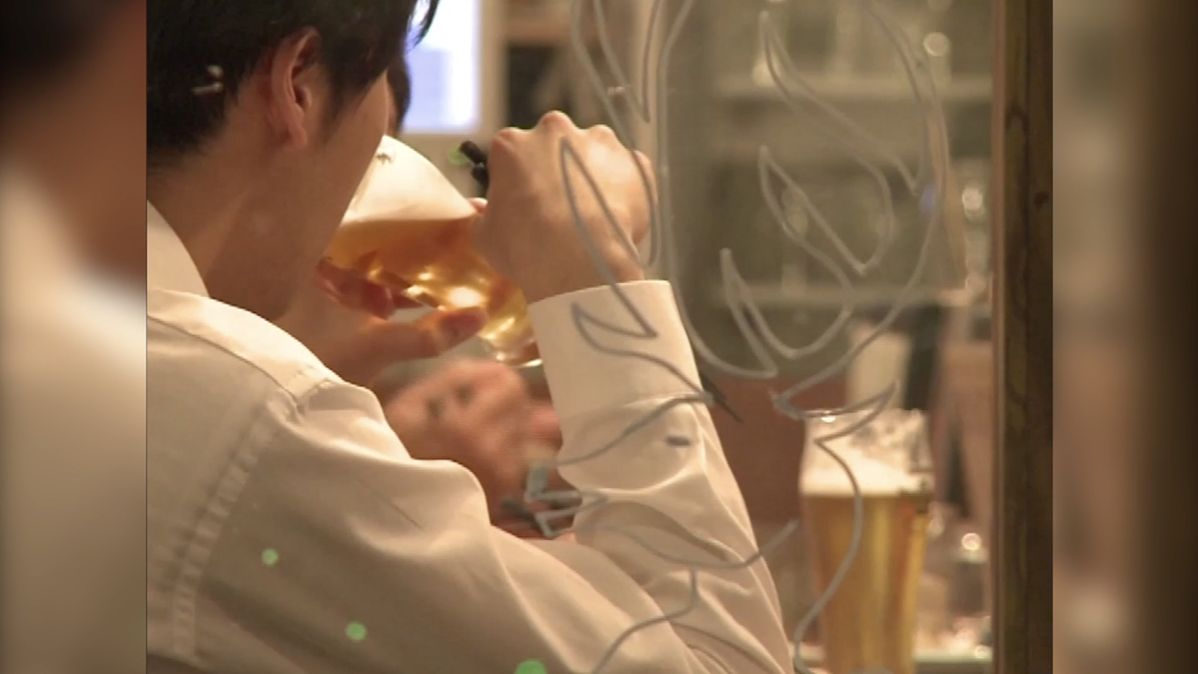

Long a mainstay of Japan's office work culture, the tradition of after-work drinking now faces cutbacks despite record high employment levels. The pressure is on for less drinking, increased productivity and a more inclusive workplace.
Timothy Langley of Tokyo-based public affairs and management consultancy Langley Esquire describes the typical positive view of Japan's traditional after-work drinking culture: "I'm going to finish work at maybe seven or eight o'clock. I'll go drinking for an hour or two; I'm good! Then I can join my friends. I drink a little bit less expensively, and then I go home at 11 or 12 o'clock. I'm good!"
While offering a chance for spirited team-building, after-work drinking also extends the hours away from home, often excluding those who have family obligations, or simply don't wish to drink.

An example of Japan's after-work toasting tradition. /CGTN Photo
Now, with pressure from Japan's government and Keidanren business federation, as well as from workers in Japan's current record high-employment economy, reducing after-work drinking is a rising workplace goal.
"The government and Keidanren are in a bit of a hard space. They need to have more productive employees," Langley told CGTN. "Now, the Japanese employees have a little bit more power. They have expectations, and they have issues – they have demands."
Some of those demands are being made by women, who may find after-work drinking outings impinging on time with family and are seeking to reimpose a feminine social role that claws back part of the status hard-won in the office.

Timothy Langley of Langley Esquire. /CGTN Photo
Langley spoke about the social context presented by after-work drinking parties and the roles expected of women at such outings.
"It's different than what they would be doing at work. At work, they're not really subservient, they're kind of – it's somewhat egalitarian. But when you go out, you're supposed to be dainty; you're supposed to be subservient; you're supposed to play a female role. And that really rubs a lot of people the wrong way, said Langley."
For now, the campaign to reduce after-work drinking has behind it just the good intentions of government and business leaders and lacks the force of law.
But with Japan's increasingly diverse workforce, experts say that work-style reform will need to be taken seriously if Japanese employees are to thrive in a global innovation marketplace.

Men enjoy a drink after work. /CGTN Photo
Takuma Tagawa, a consultant for Work-Life Balance, a Tokyo-based company that helps Japanese firms understand the advantages of time off for their workers, says that reducing after-work drinking could shift office decision-making back to its rightful place.
"When you reduce after-work drinking, companies have to make the important decisions during the daytime, allowing all employees to get involved in the process. This will lead to increased motivation for the employees," he said.
But one look at Tokyo's nighttime street scenes reveals that after-work drinking is a well-entrenched Japanese custom. Many workers say drinking parties serve as a remedy to the traditional, stiff office culture.
One office worker in Tokyo's Yurakucho under-the-train-tracks drinking district explained his view of the after-work drinking issue.
"It's because of the lack of communication in the workplace that the employees cannot discuss their honest opinions with their boss or colleagues unless they are drinking," he said. "I think this lack of communication in the workplace is problematic."

Lager for thirsty workers. /CGTN Photo
Previous government and business council efforts to implement work-style reforms have met with limited success.
This time, raising awareness of after-work drinking issues may sensitize businesses to the needs of their employees, offering the workers a choice, at least.
Takuma Tagawa of Work-Life Balance said the ideal situation is one where "it is up to the individual whether to accept or reject the invitation for after-work drinking."
"That's the paradigm shift we wish to create, where individuals can act independently and conduct business the way they like," he said.

Copyright © 2018 CGTN. Beijing ICP prepared NO.16065310-3
Copyright © 2018 CGTN. Beijing ICP prepared NO.16065310-3